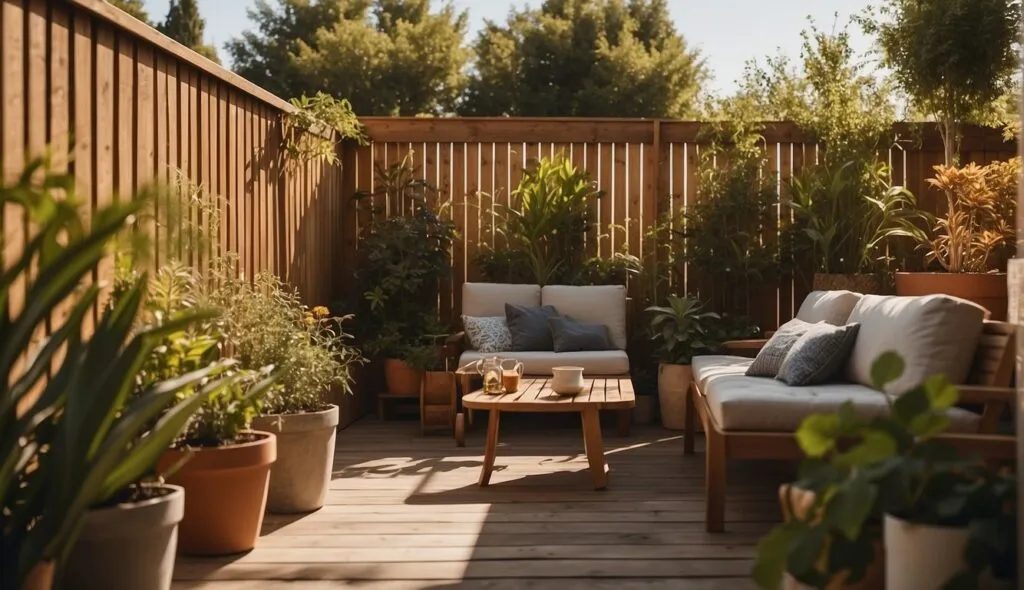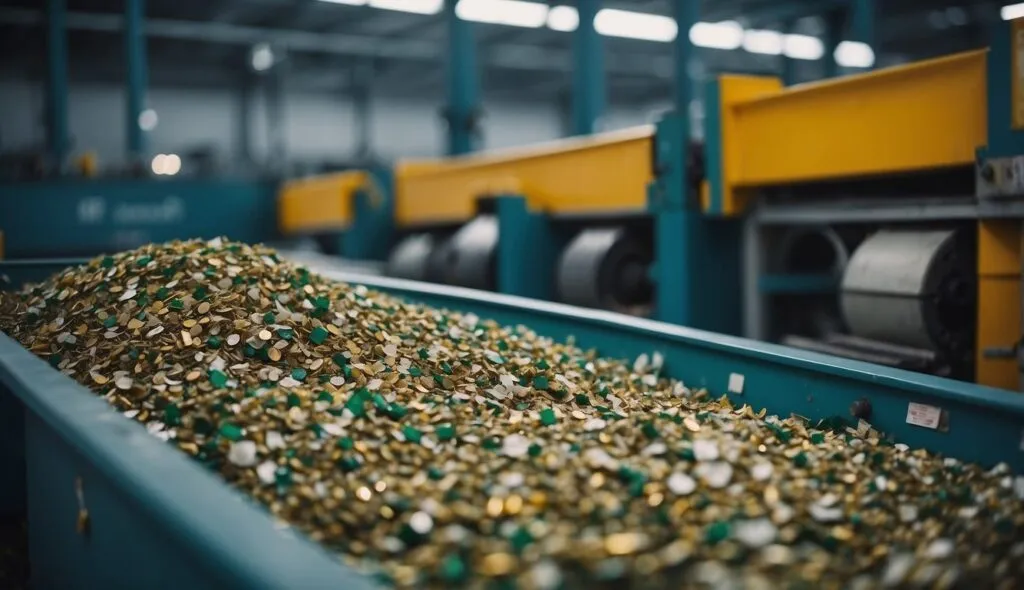As balcony owners, we all want to enjoy our outdoor space without worrying about prying eyes. Installing a privacy screen is a great way to achieve this, but it’s not enough to just set it and forget it. Regular maintenance is key to ensuring that your balcony screen continues to provide the comfort and style that you desire.
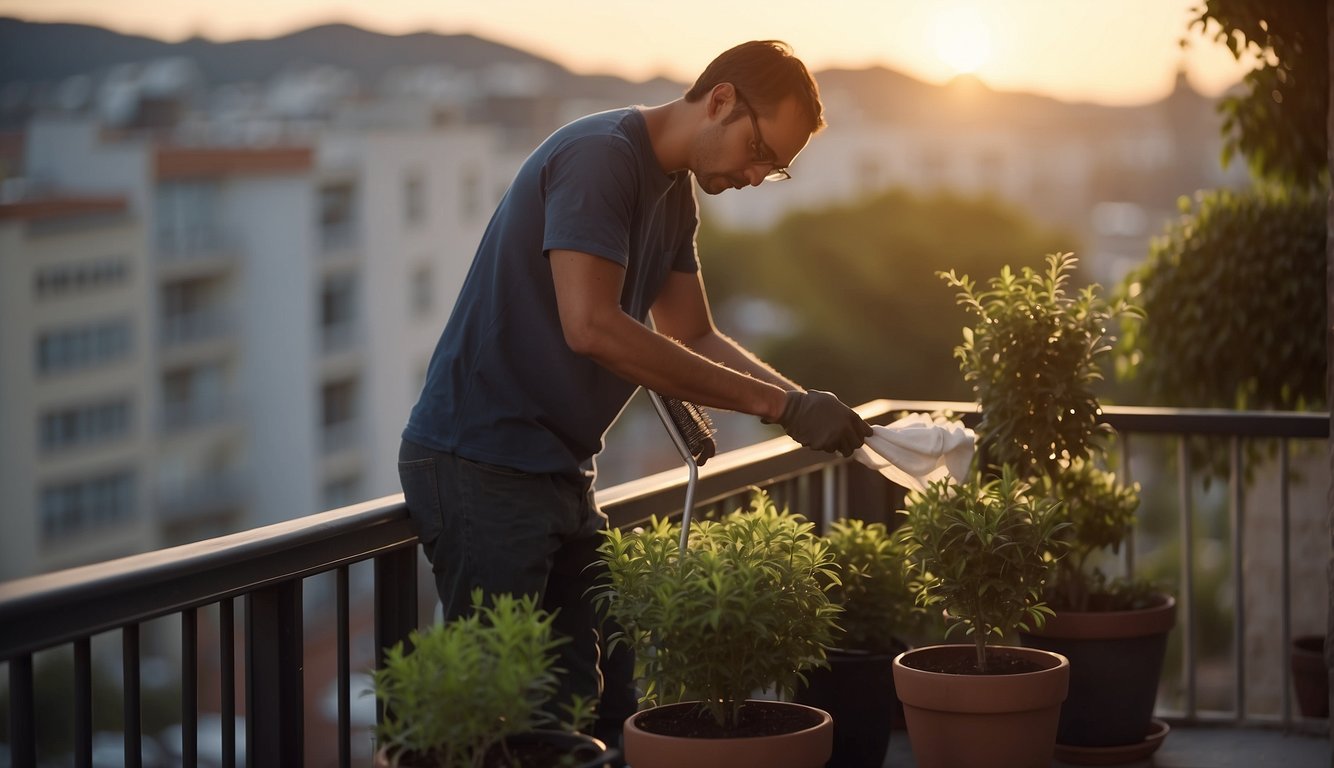
To start, it’s important to choose the right materials for your privacy screen. Consider factors such as weather resistance, durability, and aesthetics when selecting your screen material. Once installed, be sure to check your screen regularly for any damage or wear and tear. Small repairs can often be made easily with a patch kit or replacement screen material, but larger issues may require professional assistance.
Finally, don’t forget about the design and aesthetics of your privacy screen. While functionality is important, you also want your screen to look good and complement the overall style of your balcony. Regular cleaning and maintenance can go a long way in keeping your screen looking its best. With these tips in mind, you can enjoy your balcony in peace and privacy for years to come.
Table of Contents
Key Takeaways
- Regular maintenance is key to ensuring that your balcony screen continues to provide the comfort and style that you desire.
- Consider weather resistance, durability, and aesthetics when selecting your screen material.
- Regular cleaning and maintenance can go a long way in keeping your screen looking its best.
Understanding Balcony Privacy
As we enjoy our outdoor space, privacy is one of the most important factors to consider. A balcony screen is an essential element that can provide both privacy and protection from the elements. It can also add an aesthetic appeal to your apartment balcony.
When it comes to balcony privacy, there are several factors to consider, including the material of the screen, the level of privacy you need, and the maintenance required to keep it in good condition.
One of the most popular materials for balcony screens is fabric. Fabric screens are available in a variety of materials, including polyester, nylon, and cotton. They are easy to install and can be removed when not in use. However, they require regular cleaning and maintenance to prevent mold and mildew growth.
Another popular material for balcony screens is wood. Wooden screens provide a natural and rustic look to your balcony. They are durable and require less maintenance than fabric screens. However, they are more expensive and may require professional installation.
In addition to the material of the screen, the level of privacy you need is also an important factor to consider. If you live in a crowded area or have nosy neighbors, you may need a screen that provides complete privacy. On the other hand, if you just want to block the view from one side, a partial screen may be sufficient.
Finally, it is important to maintain your balcony screen regularly to keep it in good condition. Regular cleaning and maintenance can prevent mold and mildew growth, and extend the lifespan of your screen. It is also important to inspect your screen for any damage or wear and tear, and replace it if necessary.
By understanding the different factors involved in balcony privacy, you can choose the right screen for your needs and keep it in good condition for years to come.
Choosing the Right Materials
When it comes to balcony screen maintenance, choosing the right materials is crucial. The type of material you choose will determine the durability, quality, and aesthetics of your balcony screen. In this section, we will discuss the different natural and synthetic options available for balcony screens.
Natural Options
Bamboo and wood are popular natural options for balcony screens. They offer a rustic and natural look that blends well with greenery and plants. However, natural materials require regular maintenance to prevent rot and decay.
Synthetic Solutions
Synthetic materials such as fiberglass, aluminum, vinyl, and polyester fabric are popular choices for balcony screens. Fiberglass is affordable, durable, and easy to install. Aluminum is strong and resistant to rust, while vinyl is lightweight and low-maintenance. Polyester fabric is a good option for those who want a more decorative look.
When choosing synthetic materials, it’s important to consider their durability and quality. A high-quality balcony screen will last longer and require less maintenance. Additionally, consider the climate in your area and the level of privacy you want. Some materials may be better suited for certain climates or offer more privacy than others.
In conclusion, choosing the right materials for your balcony screen is essential for its maintenance and longevity. Consider the pros and cons of each material and choose one that fits your needs and preferences.
Installation Tips
When it comes to installing balcony screens, there are a few things to keep in mind. In this section, we’ll cover some tools and techniques you’ll need to get started, as well as tips for securing your privacy.
Tools and Techniques
Before you start installing your balcony screen, make sure you have the right tools on hand. You’ll need a drill, screws, a screwdriver, and a utility knife. You may also need a frame and fasteners, depending on the type of screen you’re installing.
When it comes to attaching the screen to your balcony, you have a few options. You can staple it to a wooden frame, or use fasteners to attach it directly to the balcony railing. Whichever method you choose, make sure the screen is taut and secure.
Securing Your Privacy
One of the main reasons people install balcony screens is to increase their privacy. To ensure your screen provides the level of privacy you need, make sure it’s installed correctly. If there are any gaps or loose areas, people may be able to see through the screen.
To maximize your privacy, consider installing a retractable screen that you can pull down when you need it. This will allow you to enjoy your balcony without worrying about prying eyes.
In summary, installing a balcony screen can be a great DIY project, but it’s important to have the right tools and techniques. Make sure you have everything you need before you start, and take your time to ensure the screen is installed correctly. With a little effort, you can enjoy a private and peaceful balcony all year round.
Maintaining Your Privacy Screen
Maintaining your balcony privacy screen is essential to ensure it lasts for years to come. Regular inspection is crucial to identify any damages such as cracks or loose panels. We recommend checking the condition of your screen every three months. If you notice any damages, it is important to repair them immediately to prevent further damage.
To keep your balcony privacy screen looking new, you should clean it regularly. Establish a cleaning schedule based on your local climate and the level of dirt your privacy screen is exposed to. For example, if you live in a dusty area, you may need to clean your screen more frequently.
When cleaning your privacy screen, use a mild detergent and a soft brush to scrub away dirt and grime. Be sure to rinse the screen thoroughly with water after cleaning. Avoid using harsh chemicals or abrasive materials that can damage the screen.
To protect your balcony privacy screen from the elements, consider using weather-resistant paints or stains. These treatments can help to prevent water damage and fading caused by exposure to the sun. Be sure to choose treatments that are suitable for the material of your screen.
In summary, regular maintenance, cleaning, and the use of weather-resistant treatments are essential to maintaining your balcony privacy screen. By following these tips, you can ensure that your privacy screen lasts for years to come.
Design and Aesthetics
When it comes to balcony screen maintenance, it’s essential to maintain the aesthetic appeal of your screens. A well-maintained balcony screen not only provides privacy but also adds to the overall visual appeal of your balcony. In this section, we will discuss how to maintain the design and aesthetics of your balcony screen.
Complementing Your Space
One of the key aspects of balcony screen maintenance is ensuring that your screens complement your existing decor. Aesthetically pleasing screens can add elegance and flexibility to your outdoor space. When choosing a balcony screen, consider the color, pattern, and design that will complement your balcony decor. Retractable screens and folding privacy screens are great options for those who want to maintain the aesthetic appeal of their balcony while also having the flexibility to adjust their screens as needed.
Enhancing Functionality
In addition to complementing your space, balcony screens should also enhance the functionality of your outdoor area. For example, if you have a small balcony, you may want to consider a screen that can be easily folded or retracted to save space. Similarly, if you use your balcony for entertaining, you may want to consider a screen that provides additional privacy without obstructing the view.
Regular maintenance is crucial for maintaining the aesthetics and functionality of your screens. Dust them off periodically, especially if they are fabric or have intricate patterns. For retractable screens, ensure the mechanism operates smoothly by occasionally testing it. By following these simple maintenance tips, you can ensure that your balcony screens remain both aesthetically pleasing and functional for years to come.
Conclusion
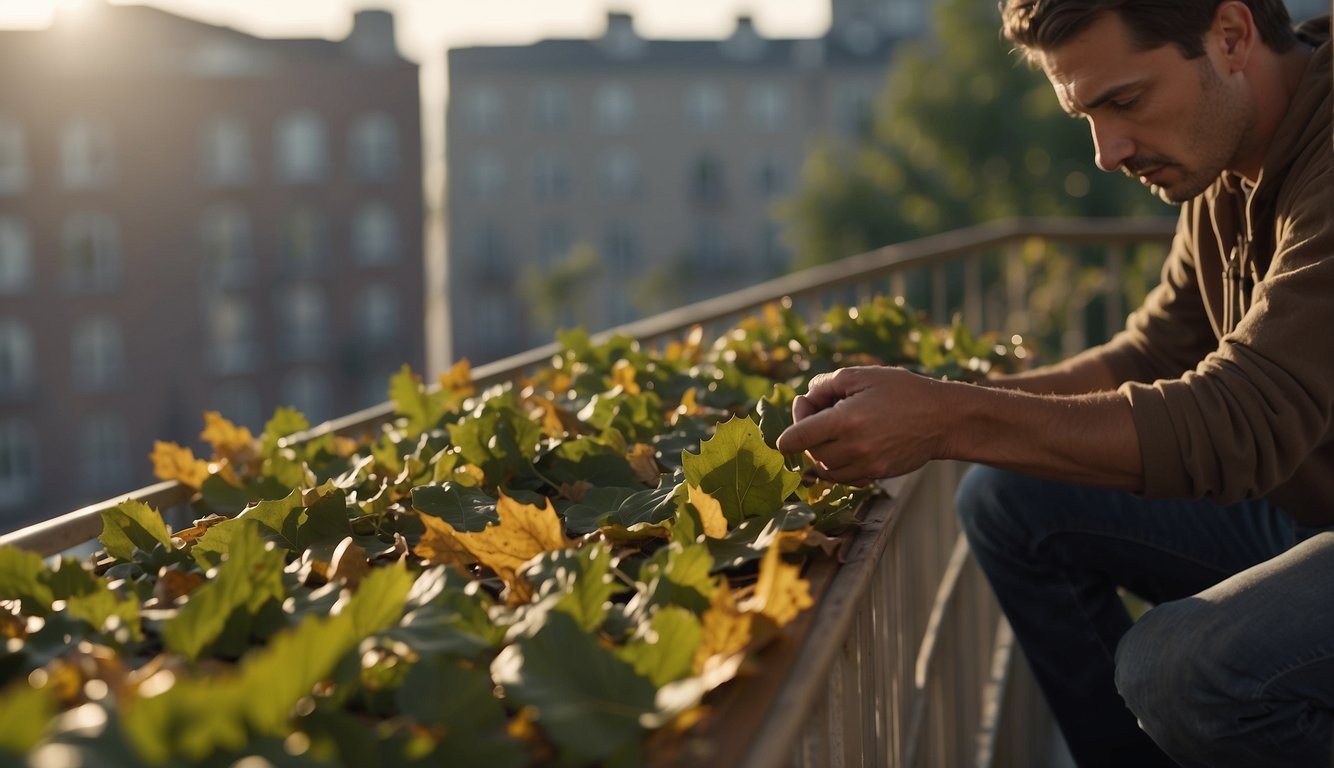
In conclusion, maintaining your balcony screen is crucial for both safety and aesthetics. Regular upkeep will ensure the longevity of your screen and keep it functioning properly.
When it comes to cost-effective solutions, we recommend using a screening kit or building a frame yourself. This will save you money compared to hiring a professional and will give you more control over the final product.
Privacy is also an important consideration for many balcony owners. Installing a screen will provide a level of privacy without sacrificing the airy feel of your balcony.
Lastly, if you enjoy entertaining guests on your balcony, a screen can also help create a more intimate setting. Your guests will appreciate the added privacy and you’ll be able to enjoy your time together without worrying about prying eyes.
Overall, taking the time to maintain your balcony screen will pay off in the long run. With these tips, you can keep your screen looking great and functioning properly for years to come.
Frequently Asked Questions
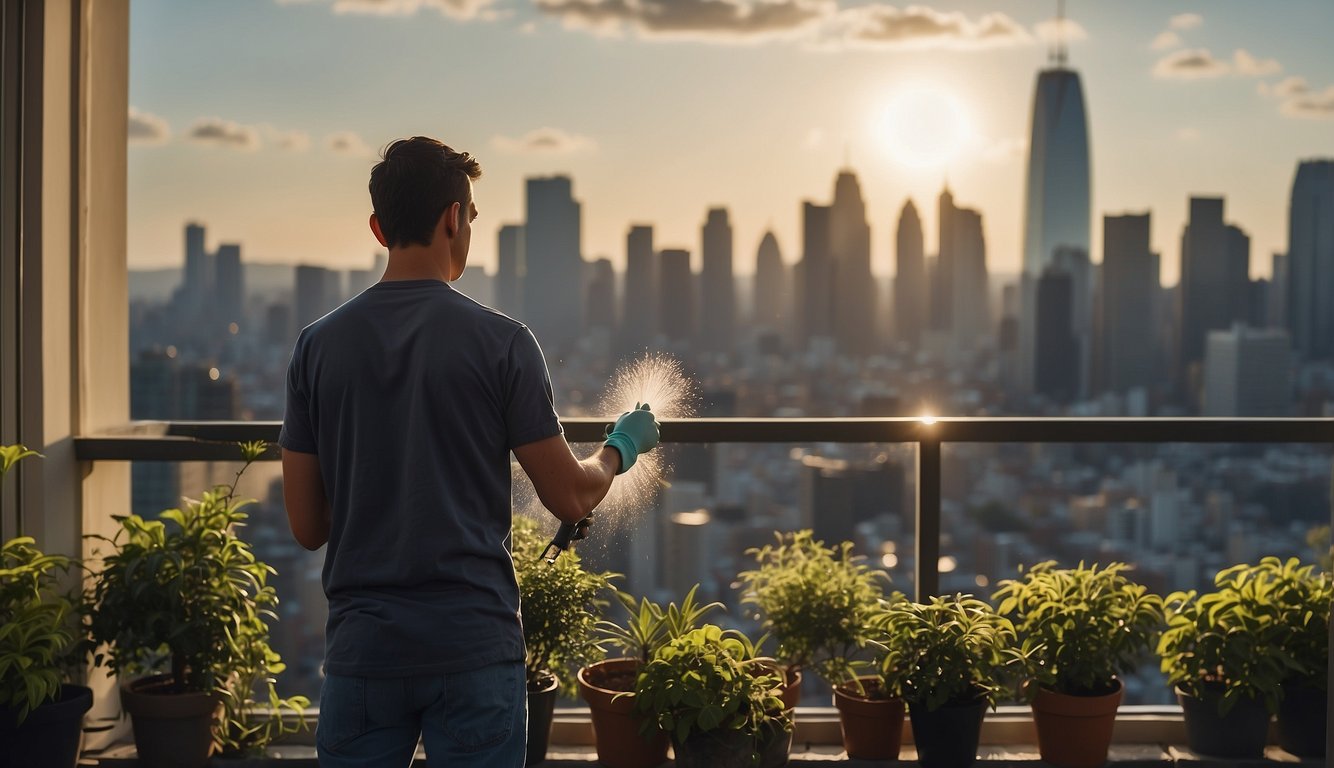
How can you effectively clean a screened balcony?
Cleaning a screened balcony is an important part of balcony screen maintenance. To effectively clean a screened balcony, we recommend using a soft-bristled brush or a microfiber cloth to remove any dirt or debris from the screens. Avoid using abrasive materials or harsh chemicals that can damage the screens.
What are the best methods for maintaining a screen enclosure?
Regular maintenance is key to keeping your screen enclosure in good condition. Some of the best methods for maintaining a screen enclosure include inspecting the screens for damage, repairing any tears or holes, cleaning the screens regularly, and trimming any nearby trees or shrubs that could damage the screens.
Which cleaning solutions are recommended for outdoor screens?
When cleaning outdoor screens, it’s important to use cleaning solutions that are safe for the environment and won’t damage the screens. We recommend using a mild detergent mixed with water, or a specialized screen cleaning solution. Avoid using bleach or other harsh chemicals that can damage the screens.
What are some DIY tips for keeping balcony screens in good condition?
There are several DIY tips that can help keep your balcony screens in good condition. These include regularly cleaning the screens, repairing any tears or holes, trimming nearby trees or shrubs, and applying a protective coating to the screens to prevent damage from UV rays.
How can you protect your screen porch from wear and tear?
To protect your screen porch from wear and tear, we recommend regularly inspecting the screens for damage, repairing any tears or holes, and applying a protective coating to the screens to prevent damage from UV rays. Additionally, avoid placing heavy objects on the screens or using abrasive materials that can damage the screens.
What routine should be followed for long-term balcony screen maintenance?
For long-term balcony screen maintenance, we recommend inspecting the screens regularly for damage, repairing any tears or holes, cleaning the screens regularly, and applying a protective coating to the screens to prevent damage from UV rays. Additionally, trimming nearby trees or shrubs and avoiding placing heavy objects on the screens can help prevent damage and prolong the life of the screens.

